
Chelsea Abbas
Teachers College
Applied Anthropology
Chelsea Abbas is a doctoral candidate in the program for Applied Anthropology. As an AC4 fellow, she will conduct research on the effects of border militarization policies on local residents in the internationally disputed borderlands of Costa Rica and Nicaragua. Through an examination of access to basic resources, migration patterns and social relations in the conflicted region her research addresses issues of national security and border reform as they relate to notions of social justice and human rights.

Cynthia Malone
Graduate School of Arts and Sciences
Ecology, Evolution, and Environmental Biology (E3B), Conservation Biology
As an AC4 fellow, Cynthia will explore the relationship between industrial oil palm plantations and human-wildlife conflict in Southwest Cameroon. She will conduct social surveys and participatory mapping to identify the drivers and spatial patterns of conflict. Ultimately, she hopes the results from this study will aid conservation practitioners in advocating for industrial oil palm plantation configurations and practices that are least destructive to human livelihoods and the wildlife with which they must coexist.
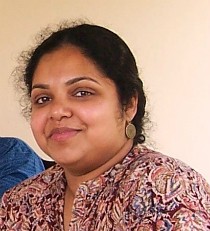
Mary Ann Chacko
Teachers College
Curriculum Studies
Mary Ann Chacko is a doctoral student in the Department of Curriculum and Teaching. Prior to joining Teachers College, she has been a middle school teacher and teacher educator in India. Mary Ann will use her AC4 funds to conduct a year-long multi-sited ethnographic study of the Student Police Cadet (SPC) program, a community policing project implemented in public schools across the Indian state of Kerala. Her research seeks to examine the factors that enabled the institutionalization of this cadet program in schools that primarily serve economically, socially, and educationally disadvantaged youth; the ways in which the SPC curriculum and pedagogical relations construct cadets as student-citizens; and the larger significance and implications of efforts by police to fashion responsible and law-abiding youth in the community.
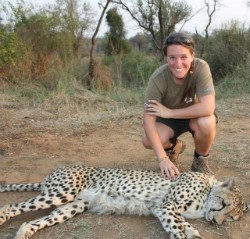
Kaggie Orrick
Graduate School of Arts and Sciences
Ecology, Evolution, and Environmental Biology (E3B), Conservation Biology
As an AC4 fellow and part of the E3B graduate program, Kaggie will determine the impact vehicle noise has on African carnivores and herbivores in small protected areas. Vehicle traffic affects acoustic communication and causes deleterious physiological responses in both humans and wildlife but has not been widely examined in large terrestrial mammals. Wildlife in small protected areas which are surrounded by roads have less space to utilize within the reserve and have constant, forced exposure to chronic noise from commuting vehicles. Kaggie worked and lived on a game reserve in South Africa for three years before attending the Columbia graduate program and hopes her research will provide vital information about the future of small, protected areas, quantify the true role human development has on large mammals and find solutions for this human-wildlife conflict.
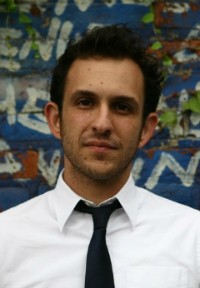
Grant Gordon
Graduate School of Arts and Sciences
Political Science
Grant’s dissertation examines how monitoring conflict deters violence before it takes place. With the AC4 Fellowship, he will analyze the impact of leaked human rights reports on the behavior of state and non-state actors engaged in conflict and conduct fieldwork in the Eastern DRC.
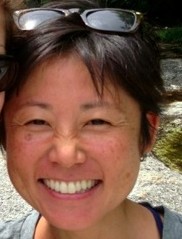
Ann Iwashita
Teachers College
Applied Anthropology
As an AC4 Fellow, Ann will investigate how geothermal energy, drawn from Kīlauea Volcano in Hawaiʻi, serves as a form around which material and social lives gather and collide. Her research examines conflicts that arise between development interests and local and Native Hawaiian communities as openings to explore myriad conceptions of a ‘good’ life, attachments to potentials and imaginaries, and possibilities for living better together.
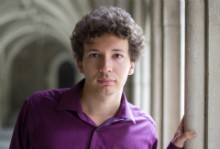
Egor Lazarev
Graduate School of Arts and Sciences
Political Science
Egor Lazarev is a Ph.D. student at the Department of Political Science, specializing in comparative politics. His research focuses on the issues in political psychology, ethnic politics and political economy of development. His AC4 project aims to explore sponsorship effects in popular perceptions of development projects with a case of Aga Khan development network performance in Tajikistan. Previously, he conducted field research in the North Caucasus, Central Asia, Bosnia and Herzegovina and Turkey. Before entering graduate school, Egor was a Research Fellow at the Laboratory for Comparative Social Research at the Higher School of Economics (Russia) and a Carnegie Visiting Fellow at the Center for Political Studies at the University of Michigan. Egor graduated with distinction from St. Petersburg State University.

Yohann Ripert
Graduate School of Arts and Sciences
French and Comparative Literature and Society
Yohann Ripert’s research examines the dynamic between the influential power of the former colonial languages and the space for minority languages in the context of autonomy and identity/territorial claims in West Africa. This investigation analyzes linguistics challenges as a new tool in preventing cultural violence and promoting conflict resolution. As an AC4 fellow, Yohann will travel to Dakar, Senegal, where he will conduct interviews at the IFAN to understand how communities have relied on a plurality of languages to remain engaged with the reality of a constantly changing electronic and globalized world. More than a study of peoples and their cultures, ultimately, this project allows us to learn from the survival strategies of communities under constant challenges from the pressures of global forces.
.
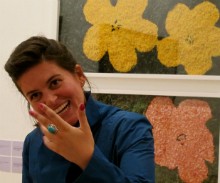
Diana Rodriguez
Teachers College
International Educational Development
Diana is an Ed.D. Student in International Educational Development at Teachers College, with a concentration in Peace and Human Rights Education. For her AC4 project, she is examining how categories of war, such as “guerrilleros,” “whistleblowers,” “infiltrators,” “military,” and “refugees,” are used in educational settings to order the social relationships and to distribute financial resources within the school community in the Colombian and Ecuadorian border. She expects her work will provide a guide to some of the complex realities that might emerge in a process of peace and reconciliation.
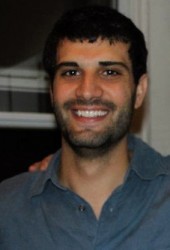
Michael Rubin
Graduate School of Arts and Sciences
Political Science
Michael’s research addresses the political linkages between violent non-state actors (rebels) and civilians in civil wars. In particular, his dissertation investigates the ways in which civilians may hold rebels accountable for their conduct in rebel-controlled territory. It emphasizes the impact of various forms of civilian collective action on rebels’ governance strategies and their treatment of civilians, including the provision of public goods and the use of civilian-targeted violence. AC4 funds support case study research in Aceh, Indonesia.
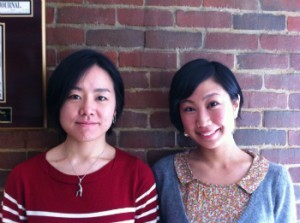
Yumiko Murai and Yuki Ohsaka
Teachers College and School of Social Work
Yuki and Yumiko will investigate how people living in post-disaster stricken areas in Japan have developed sustainable cooperative communities, and whether the existence of communal spaces can contribute to reconstructing social connections that have been disrupted by disasters. Communal spaces are the places such as cafes, libraries, and recreation centers developed after the disaster to help people reconstruct local communities. A number of scholars have reported that positive human connections and a culture of peace promote community resilience, which helps members strive mentally and physically in a post-disaster situation. Taking multidisciplinary approaches, we plan to investigate the impact of communal spaces built after the disaster on promoting meaningful social connections and sustainable development of the local economy. They will conduct their research in Rikuzentakata, Iwate prefecture, Japan.
